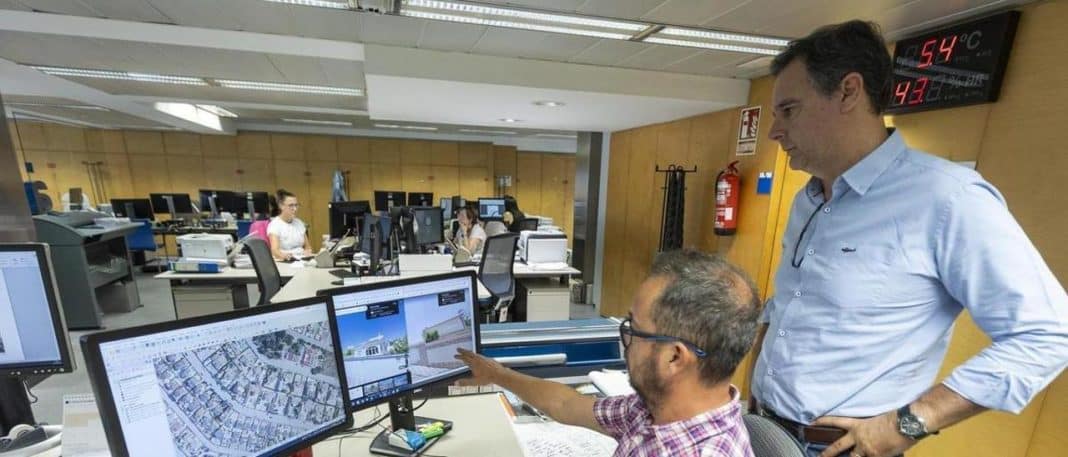Suma, the Provincial agency responsible for the management of tax revenue on behalf of municipal Councils and other public administrations is increasingly using aerial photos to discover possible fraud, including the extension of houses or the construction of swimming pools without the corresponding licenses.
With new technologies and, more specifically, artificial intelligence (AI), Suma has now begun to use photos taken with drones, an initiative it says which is part of a more extensive plan, which aims to improve collection processes, as well as the services provided to the public.
Suma Gestión Tributaria is immersed in the development of its 2021-2025 strategic plan, which, according to the director, José Antonio Belso, was born with the purpose of helping people and institutions to overcome difficulties, in a context in which that the organisation is intensifying efforts to be a more modern, responsible and inclusive organization.
“We are managing to establish a new way of relating to a society which we realise is in permanent crisis, which has pushed us to focus our time on things that are really important, such as establishing priorities, measuring results and rewarding them,” he states.
Thus, and after two years of implementation, the thing that now stands out in terms of efficiency, is an operating model with more optimized, automated and standardized processes.
Among the different procedures that are being carried out, the promotion of actions against fraud through machine learning and artificial intelligence is one through the use of aerial photos, so-called orthophotos, to compare volumetrics.
As Belso explains, “what we try to detect, for example, are larger houses or swimming pools that were not there before, as I say, to combat possible fraud.”
This is a pilot initiative in which, at the moment, just two municipal councils in the province are participating.





